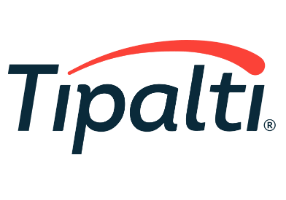
How can this occur? It is simple, and ugly. Consider a thriving business which wishes to expand beyond its home market. It can attempt this via organic growth – which can be hard. Or it might acquire a company (or business) in a target market, both to obtain local expertise and (possibly) relevant language skills as well as a marketing presence.
There is nothing ‘wrong;’ with this. It is the way expansion has occurred over generations. However, what are the Accounts Payable (AP) implications at the group level – if acquisitions continue.
Expansion, and possible implications
For example, assume that Group ABC decides on a concerted long-term expansion plan into (say) South America (but it could be Asia-Pacific or Europe or Africa or any combination). In one or two places it might already have a local, organically-grown subsidiary which conforms to Group ABC’s accounting and consolidation standards. Such conformity would have been introduced when Group ABC set up that local entity.
Now Group ABC decides to buy a distributor in Country Z (it happens to be, in legal terms, a partnership) plus acquire a second business (legally a company) in Country Y. Over a period of (say) 2-3 years it continues to invest and within half a decade Group A possesses a clutch of different legal entities operating within different accounting and regulatory systems – and with a minimum of common approach concordant with Group ABC’s procedures. In addition – and because its expansion is proving sustained and successful – Group ABC decides to simplify its management approach (though this actually complicates matters), by establishing a regional head office.
Though this expansion has been measured, the consequences have become complicated. No one started out wishing to create a mess. It just happens.
The implications
In effect, such multi-national expansion – and the associated diversity of legal and accounting structures -work to prevent both a common supplier-based approach to AP and accounting. This inhibits both effective purchasing and consistent processing.
It also opens up multi-national organizations (like Group A) to the U.S. Foreign Account Tax Compliance Act (FATCA) or Foreign Corrupt Practices Act (FCPA) or the UK’s Bribery Act – and other countries’ legal constraints. AP is vulnerable because it involves payments out.
Are there solutions?
In the AP space there are multiple potential solutions. Possible options, for example, include:
- Introduce a monolithic ERP system throughout a multi-national ERP; though ERP vendors love this the general experience is that such an all-or-nothing approach has a minimal chance of working in practice. Historically this has often been the approach taken. However rarely are the operations of a multi-national exactly the same. The project to implement the solution can prove costly in terms of time and money. In some cases projects are never completed as subsidiaries determine to stay on legacy systems in a two tier ERP that does not resolve the AP challenge.
- report ‘after the fact’ via (say) a data warehouse; this is inefficient and, being ‘after-the-fact’, is less than responsive to the day to day running of an enterprise
- adopt a specialized AP platform.
The advantages of the latter, which must complement and work with existing ERP/accounting systems, include:
- coordination and management of AP across multiple entities and entity types
- introduction of common agreed payment terms and conditions
- consistent and controlled AP processes which can deliver accurate and dependable reporting
- the capability to incorporate or reflect individual branding (for example, specific language support), payment methods, tax flows and supplier communications/reconciliations
- automated payment flow routing, with funds segregation (if appropriate)
- segregation of tax and regulatory compliance at the legal entity level – while still being able to consolidate at the regional and/or group levels
There are two additional positive factors which a specialized AP platform adds – one which are often lost in the complexity of international and/or multi-entity AP:
- improved supplier relations, not only through improved purchasing and payment procedures which are easier for suppliers to navigate but also through improved purchasing because this is now undertaken on a group basis (rather than at an entity level)
- support for international HQ functions which find themselves having to provide remote AP to subsidiaries and/or entities which lack their own AP capabilities.
For an AP platform to work as intended, one imperative must apply. Expanded AP capabilities must happen without increasing the resource cost of AP to the business. An AP platform must:
- automate the entire end-to-end supplier payments workflow
- be capable of working with an enterprise structure where multiple subsidiaries, brands, international business units, divisions, region and entities co-exist
- deliver unified operations with immediate visibility of AP implications (for example, cash flow planning) across the whole enterprise
- respect and maintain both local autonomy/control and conformity with local regulations and taxation
- provide the credible documentation and audit trail capabilities necessary to satisfy internal and external auditors, fraud prevention as well as regulatory and tax compliance
- consolidate at regional and headquarter levels in ways which are efficient and meet a group’s reporting requirements.
If these can occur, an AP platform complements local operations and ERP/accounting. At the same tine this will facilitate headquarter operations. This is a pairing which, all too often, becomes lost when successful growth exceeds an organization’s ability to handle it.

























